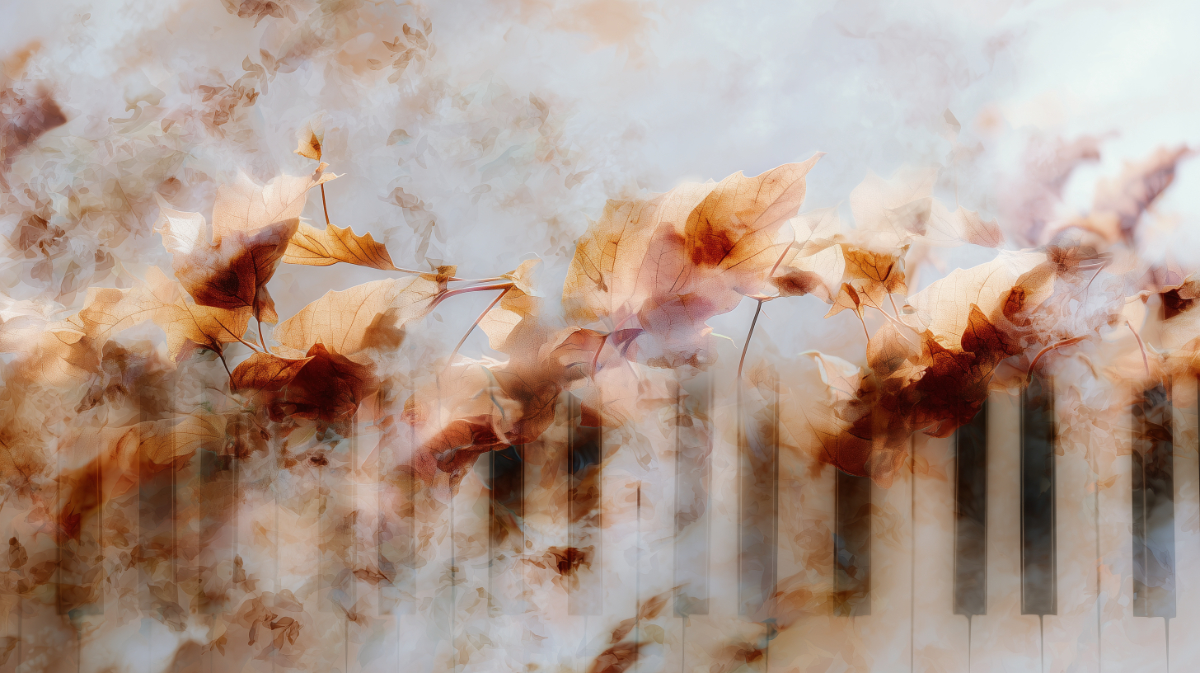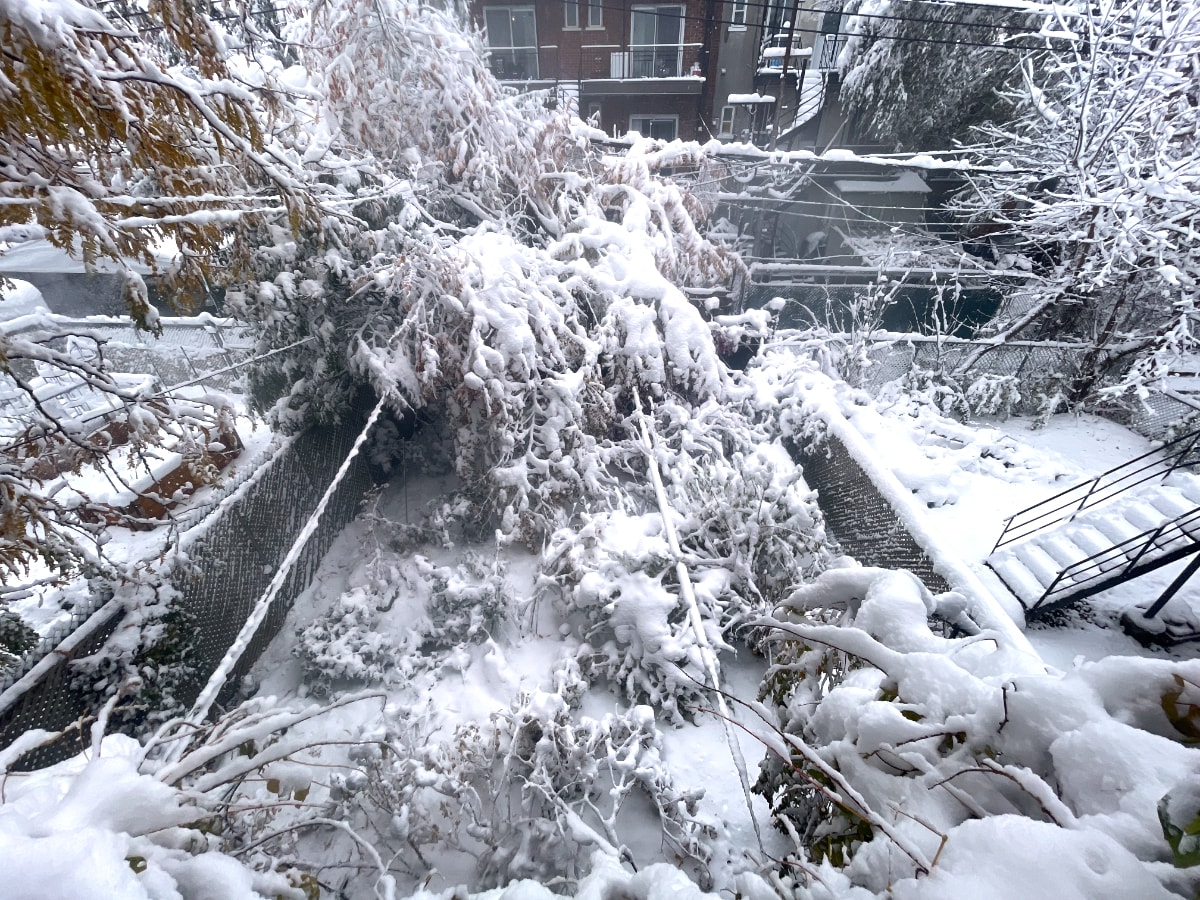
The Season of Those Who Leave
Aunt Thérèse passed away recently. Suffering from invasive cancer, she requested medical assistance in dying. A few months earlier, under similar circumstances, Uncle François also decided to leave his life that had become too painful.
At sixty-six, I’ve reached that twilight zone where departures begin to mark the seasons. It’s no surprise. Beyond fate’s blows and accidents, our address book gradually empties itself of entries, when we ourselves don’t become the object of a deletion.
I attended my aunt’s funeral, accompanied by my mother. We took the opportunity to visit one of her brothers and also one of her sisters. My mother comes from a large family of 12 children. Several are gone. The eldest daughter and the youngest remain. The one we briefly visited no longer remembers much. She didn’t recognize my mother, even though, surprisingly, she spoke to us with clarity about her distant past, unaltered by illness.
Mom is deeply saddened by the fact that, one by one, her surviving sisters are losing touch with reality. Fortunately for us, our mother retains all her faculties. Living with your reason until the end is such beautiful dignity. But then, those who forget aren’t there to regret it. The suffering falls more to those who continue to remember.
I was surprised to see so many people who came to say goodbye to Aunt Thérèse, because I had in mind that this woman, widowed too young, lived alone. She was a tiny little lady, having worked as a seamstress in a factory, jovial, whom it was easy to make blush with a heartfelt compliment. Yet she didn’t seem to age, always with her hair styled like in the sixties, cheeks in a smile, happy to see her world.
From the heights of my intellect and self-importance, I’d say she was a humble person, happy in her uneventful daily life, loved by those close to her, always ready to be moved by a romantic song. Close to her dear Lord, I learned from my mother that my aunt hesitated before deciding the day she would leave this Earth. But suffering overcame her will.
A Quiet Revolution Redux
For a small people like ours, for a Quebec that long lived under the influence of an omnipotent Catholic Church, the adoption of medical assistance in dying remains a remarkable phenomenon. We are, at heart, rather conservative. We love our traditions, our habits, our landmarks. And yet, when it came to legislating on end of life, Quebec said yes with a determination that surprised many observers.
The numbers speak for themselves. Since the law’s adoption in 2015, more than 30,000 Quebecers have used medical assistance in dying. In 2024, MAiD represented 7.3% of all deaths in Quebec, one of the highest rates in the world. This isn’t just a statistical detail. It’s a profound transformation of our relationship with death, a collective affirmation that dying with dignity is a fundamental right.
Aunt Thérèse called my mother a week before the chosen date. Cancer had conquered every territory of her body. To console her, Mom told her that my sisters and I loved her very much, and this wasn’t a pious lie. We loved joking with her, she who had no children. Hearing this, my aunt reportedly cried: “I always wanted to have fun in life.”
I also remember this friend of a friend who also requested this medical assistance, because cancer had undermined his spine and his suffering was atrocious. Modern times oblige, his buddy sent us on the appointed day a photo of him, a few hours before plunging into silence.
Finally, my first contact with MAiD was with my father, in 2023. You have to witness it to understand the humanity that surrounds the process. Time stops, so to speak, not really for the person preparing to die, but for those who remain and who anesthetize their grief in order to respect the one becoming nothingness.
I know it’s not as magical for everyone. But that’s how I experienced it and how I wish it for myself.
Those Who Remain, Those Who Press On
But death isn’t alone in occupying my horizon. Around me, I also see old people who continue. Not resigned old folks passively waiting for the end, no. Vibrant, curious old people, obstinate about fully living each day given to them.
My mother is 87. She just bought herself a piano. She nearly died from a serious infection last year, which almost extinguished the little finger of her left hand. Never mind. She continues her online piano lessons with Gregory Charles!
I realize I’m navigating between these two currents: those who leave and those who persist. Both attitudes seem equally dignified to me, equally courageous in their own way. Choosing to die when life is nothing but suffering requires immense courage. Choosing to continue, to learn, to create when time is counted in years rather than decades demands a form of audacity and optimism that commands respect.
At sixty-six, I’m not yet old enough for death to lurk around every corner, but I’m old enough to understand that the meter is running. This awareness isn’t morbid. It isn’t entirely liberating either. It forces me to sort things out, to eliminate the superfluous.
The season of those who leave is also, paradoxically, the season of those who live. Faced with death, two reactions present themselves: paralyzing fear or the carefree acceptance of being with one’s destiny and living it.
So I choose to be naive, to listen to time passing above me. I’m not certain this is actually lucidity. In fact, I may never have the slightest idea.
It’s because I don’t know that I submit. We all wish not to suffer, but can only tell ourselves we’ll find a way to cross the river once we get there.
Meanwhile, I gather memories, I fill shelves with them in my head. And if, in that space, that time that is no longer life, a great library were to rise up to welcome, each in our turn, the small booklet of our story?

